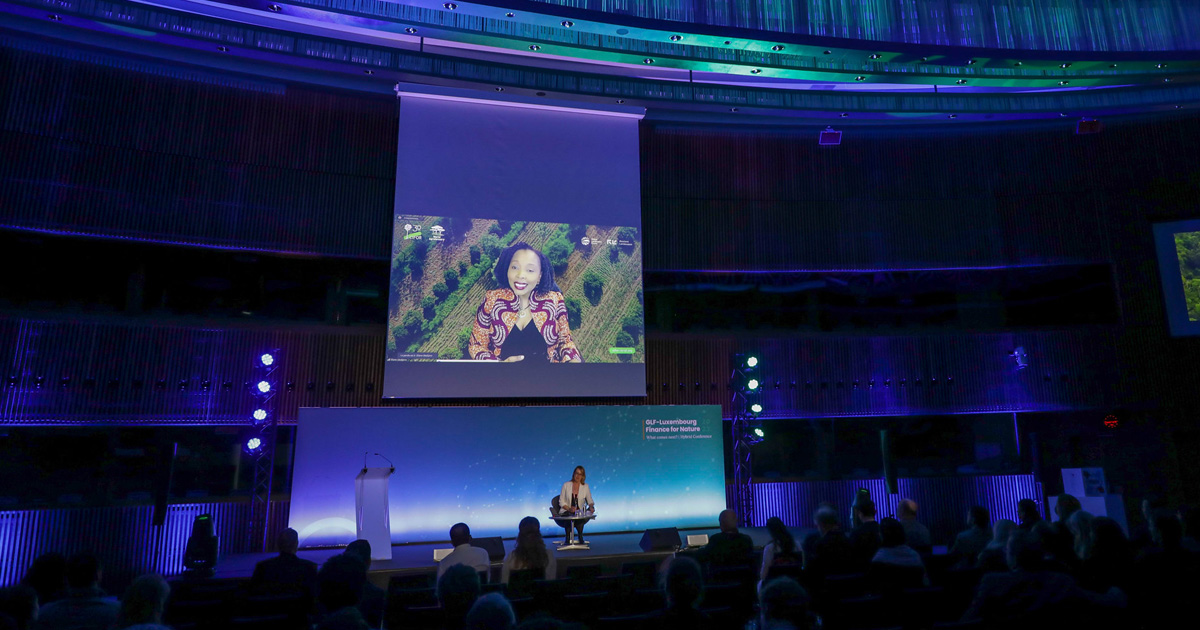
CIFOR-ICRAF leadership highlighted the urgent need for inclusive finance and innovative solutions at the 6th GLF Investment Case Symposium in Luxembourg on 7 March 2023.
Incoming CIFOR-ICRAF CEO Éliane Ubalijoro spoke at the closing plenary “New ways forward: How can the financial ecosystem sustain and restore nature,” bringing attention to important work being done globally and calling for greater collective action.
“It is not just about mobilizing finance. It is about inclusive finance and ensuring that everyone has access to it,” she said. “As we learned today, we need to continue developing ‘tried and tested’ as well as innovative financial instruments to mobilize new sustainable finance.”
And ad interim ICRAF Director General Ravi Prabhu also spoke in the same plenary, emphasizing the need for a stewardship economy.
“The way we farm our lands and mismanage our forests is literally killing our planet. It’s also killing our farmers,” he said.
“Our investments must focus on the stewards … especially those in Indigenous communities, who are caring for the land and our futures,” he said. “A transition to a stewardship economy and investments that reflect care and reward a duty of care will help find the balance between nurture and use, of nature and humans alike.”
CEO ad interim and CIFOR Director General Robert Nasi spoke at the opening plenary “How do we reach the sustainable finance tipping point?”, addressing the greening of finance, the shortage of financing available to developing countries, and the still-rampant greenwashing by finance giants.
“We know that the financial sector has been a key driver responsible for the multiple crises we are facing today … but we also know that it has the potential to be an important part of the solution of these crises,” he said.
“At CIFOR-ICRAF, we believe that nature-based solutions are a sound investment. And while the best time to plant a tree was 20 years ago, the next one is now,” he said.













